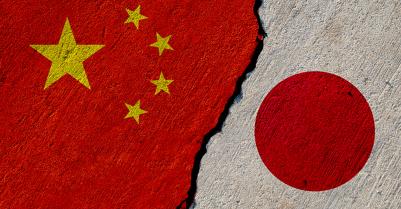-
View article
 #Economy
#EconomyChina: confidence, price war and credibility are the watchwords in this early part of the year
2024/03/26
- 2012/03/06
- 3 min
- 0
-
0
The Grameen Crédit Agricole Foundation celebrates four years of existence and sets new ambitions for Microfinance and Social Business in fighting world poverty
Today Crédit Agricole celebrates the fourth anniversary of the Grameen Crédit Agricole Foundation, established in 2008 with Prof. Muhammad Yunus, winner of the Nobel Peace Prize in 2006 and founder of Grameen Bank. In its four years the Foundation has become a noted provider of funds for microfinance and a pioneer in the field of Social Business. Jean-Marie Sander, chairman of Crédit Agricole S.A., was appointed chairman of the board of the Foundation on 5 March 2012. He succeeds René Carron, chairman of the Fondation since its creation.
In the shared belief that poverty could be fought through initiative and entrepreneurship if only suitable financial services were made affordable to the poorest of the poor, René Carron, Georges Pauget (then chairman and chief executive of Crédit Agricole S.A.) and Prof. Yunus decided in 2008 to establish the Foundation in order to help to fight poverty in developing countries by bringing together the reputation and know-how of Crédit Agricole and Grameen.
For Jean-Marie Sander, chairman of Crédit Agricole S.A. and the new chairman of the Foundation, “the Grameen Crédit Agricole Foundation acts to bring about long-term change consistent with our values of solidarity. We are proud of the results it has achieved.”
A major player in microfinance, with €32 million of financing provided in 19 developing countries
Since it was founded, the Grameen Crédit Agricole Foundation has become a major player in microfinance. In four years it has achieved significant results, financing €32 million, distributed to 47 projects in 19 of the poorest countries in the world, notably Mali, Madagascar and Timor Leste.
After four years of existence, the Grameen Crédit Agricole Foundation has marked its difference and demonstrated a very purposeful approach to what it does. The merit of the Foundation's positioning has been recognised by the bilateral cooperation agencies that have partnered with it:
- On 10 March 2010 a partnership agreement was signed with the Government of Monaco and its Department of International Cooperation.
- On 28 March 2011 a guarantee agreement was signed with AFD, France’s development agency. A 50% guarantee applies to the Foundation's entire portfolio of loans and guarantees in Africa and the Middle East.
An innovative approach in the area of microinsurance
Thanks to its status as a not-for-profit foundation, the Grameen Crédit Agricole can blaze new trails, explore new territory and be a proving ground for innovation, especially in the area of micro-insurance for agriculture. As it is, small farmers and herders are exposed to natural risks that can plunge them into ruin and insolvency if their harvest or their livestock is destroyed.
The Foundation has embarked on two initiatives :
- The first is a research initiative, jointly with Pacifica, the Institut Europlace de Finance foundation and Atrium Spotimage, for in-depth exploration of index-based harvest insurance models in the context of countries of the South. As part of this project, the Foundation will be hosting a doctoral student in this field for two years.
- The second initiative is the Sahel harvest insurance project, a pilot deployment of harvest microinsurance in four West African countries (Senegal, Mali, Burkina Faso and Benin) under the direction of Planet Guarantee. The Foundation, in partnership with Monaco's Cooperation department, will provide $400,000 over three years to this project, which involves 60,000 smallholders.
Social Business (SB) is a new line of development for the Foundation, which plans to introduce the first fund entirely dedicated to SB
In the new field of Social Business, the Foundation is doing pioneering work. It has taken equity participations in five enterprises:
- The Foundation is a shareholder of Laiterie du Berger, a dairy in northern Senegal. By providing an industrial and commercial outlet for milk collected from the cattle of semi-nomadic herders, Laiterie du Berger plays a key structural role in the supply chain for fresh milk in a country where more than 90% of the milk consumed is in powdered form. It provides a steady income to 950 families and helps to improve the quality of nutrition in the country.
- The Foundation is a shareholder of Grameen Danone Food Ltd, a joint venture between Danone and Grameen to produce an ultra-enriched yogurt designed to combat malnutrition among poor children in the Bogra region of northern Bangladesh and to be affordable to the poorest families.
- The Foundation has invested in Babyloan, the leading web platform in Europe for solidarity group microlending. This platform enables Internet users in the North to manifest their solidarity with micro-entrepreneurs in the South in a concrete way, by making small no-interest loans to them for six months or a year. Babyloan now has more than 14,000 solidarity lenders.
- More recently, the Foundation has approved taking an equity stake in Philéol, an enterprise that is developing the cultivation of castor in southern Madagascar for the purpose of extracting castor oil. Philéol's social model is an inclusive value chain: the enterprise commits to buy the castor seed harvest of some 3,000 small producers, who are trained, advised and supplied with agricultural inputs by the enterprise. Philéol is committed to assuring that the benefit of this value creation goes to these very poor peasants, who have practically no money income and live in the most arid part of the island.
- Lastly, the Foundation, alongside Entrepreneurs du Monde, is a shareholder in Chamroeun, a Cambodian microfinance institution. Chamroeun focuses on the poorest segments of the population in Phnom Penh and meets all the criteria of a social business.
The Grameen Crédit Agricole Foundation intends to go further still and plans to introduce the first fund dedicated entirely to Social Business: the Grameen Crédit Agricole Fund
The Grameen Crédit Agricole Foundation wants to give this innovative approach more visibility, and it wants to have the financial and human resources needed to play a pioneering role as facilitator of Social Business projects in developing countries thanks to an investment fund devoted exclusively to financing social business enterprises. The Foundation will itself be an investor in the fund and will implement its investment policy, thereby ensuring the social nature of the projects. This fund will be offered to investors once the necessary authorisations have been obtained.
The fund, intended to raise €15-20 million for a term of 10 years, is directed at informed, socially motivated investors who desire to combine the spirit of enterprise and the spirit of solidarity. In accordance with the inspiration of Professor Yunus, investors in this fund – institutions, individuals and foundations – will be seeking neither personal enrichment nor a return on investment in the form of a dividend, but only the repayment of their investment at maturity. The expected dividend is thus a social dividend in the form of the impact of Social Business on local communities. Once the fund is up and running, a connection will be put in place between it and the employee savings schemes of the Crédit Agricole group, so that as many group employees as possible can be investors in this one-of-a-kind fund. The private banking arms of Crédit Agricole and Amundi are also associated with this project.




